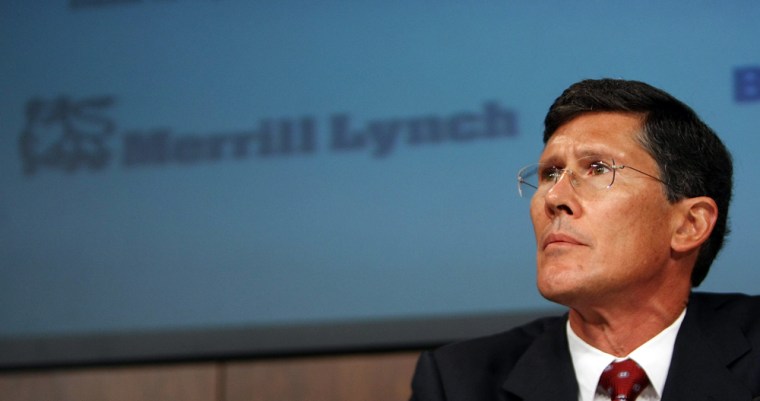Of the 4.3 million Americans who lost their jobs this year, unemployed CEOs may deserve the least public sympathy. Many of them ran companies that took federal aid. Others made a fortune when they sold their companies. One may have mishandled data that was tied to his company's most promising product.
But as we look back on one of the worst years in the country's financial history, the unemployed among us may find some solace in the fact that regardless of title or paycheck, in a down market, everyone is vulnerable.
The automotive industry hemorrhaged jobs this year, both on the assembly line and in the corner office. On March 29, the Obama administration axed General Motors Chief Executive Rick Wagoner as part of the company's eventual bankruptcy. And In November the board of automobile lender GMAC Financial Services ousted its chief executive, Alvaro de Molina, after 19 months on the job. Between December 2008 and the time of de Molina's departure, GMAC had received $12.5 billion in taxpayer money, which gave the U.S. government a 35.4 percent stake in the Detroit company.
Edward Liddy came out of retirement to lead troubled insurance giant AIG in September 2008. When he accepted the post, and a $1-a-year salary, he said he wouldn't remain there for long. His low point as a chief executive occurred in mid-March, when Congress grilled him about the bonuses that AIG had paid to employees at its financial products unit. Liddy later asked bonus recipients to return some of the funds, but by that point, the bonuses had ignited a national furor. Robert Benmosche, a former chief executive at MetLife Inc, replaced Liddy on Aug. 10.
Both Fannie Mae and Freddie Mac experienced management turmoil this year. In March the chief executive of Freddie Mac, David Moffett, resigned after six months on the job. Moffett reportedly jumped ship because he felt frustrated by rules that required him to clear all major decisions with the company's regulator, the Federal Housing Finance Agency. Charles Haldeman, the former chief executive of Putnam Investments, replaced Moffett in July. Rival Fannie Mae lost its CEO, Herbert Allison, in April, when President Obama tapped Allison to oversee the Treasury Department's Troubled Asset Relief Program.
Another bailout recipient, Hartford Financial Services Group, lost its CEO. In June Ramani Ayer, who had led the company for 12 years, announced that he would step down from his post by year's end. Ayer was responsible for the company's push into riskier versions of variable annuities — life insurance contracts whose value fluctuates with that of underlying securities. In late March, Moody's Investors Services downgraded Hartford's long-term senior debt to one level above junk status. In doing so, Moody's cited the company's exposure to these products. The company later received $3.4 billion in government aid. In October, Hartford named Liam McGee, who ran consumer banking at Bank of America, as its new chief executive.
Acquisitions gave several departing CEOs a soft landing in 2009. Wyeth chief executive Bernard Poussot stepped down after Pfizer spent $68 billion to acquire the drugmaker. (Pfizer CEO Jeffrey Kindler remains in charge.) When Merck & Co. completed its $41 billion takeover of Schering-Plough in March, Merck chief executive Richard Clark maintained the top post; Schering-Plough chief executive Fred Hassan, who had been the CEO for six years, walked away with a $17.7 million exit payment and pension benefits worth $13.2 million.
On Wall Street, things got ugly after Bank of America acquired Merrill Lynch. In January Merrill Chief Executive John Thain, who became a lightning rod for public outrage over Wall Street greed, was forced out of his role as head of the combined company's banking and wealth management operations. On Sept. 30, Bank of America CEO Kenneth Lewis said that he would retire on Dec. 31. Last week the board of directors named consumer banking division chief Brian Moynihan as his replacement.
But at least one CEO on our list wasn't impacted by government bailouts or the subprime mortgage crisis. In September, the board of San Diego-based biotechnology company Sequenom fired chief executive Harry Stylli and four other employees after investigating the "mishandling" of test data and results related to the company's core product — what they hoped would be a groundbreaking blood test for Down syndrome. In April, the company announced that the test data had been mishandled, and a committee of independent board members hired a law firm to conduct an investigation. Stylli and his colleagues have denied any wrongdoing.
